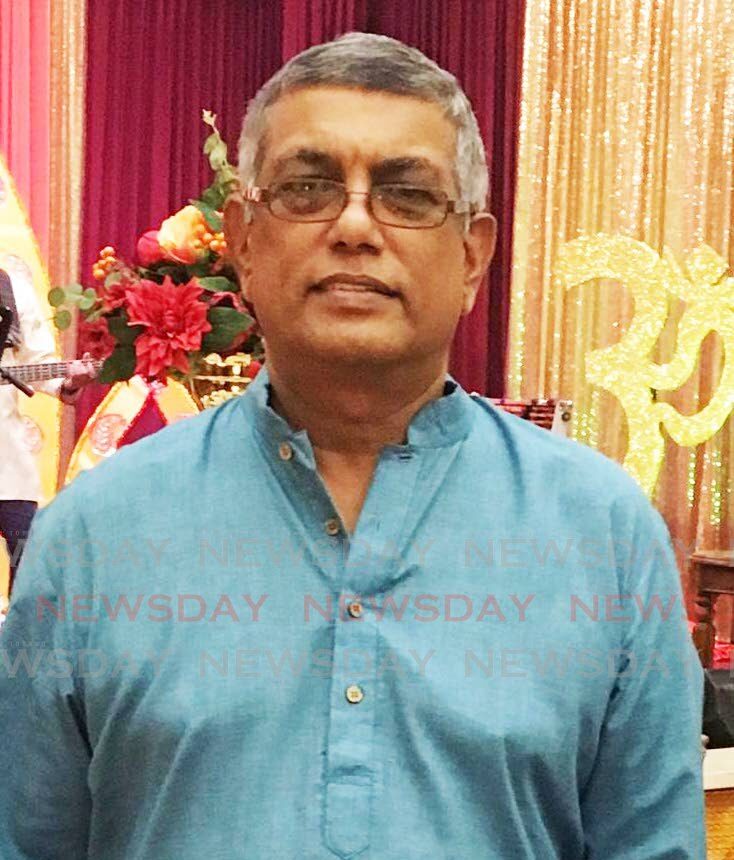TSC must be abolished

VIJAY MAHARAJ
IT IS mystifying the support shown by the TT Unified Teachers’ Association in defence of the Teaching Service Commission (TSC), given its poor performance over the many years.
The non-appointment of primary school teachers by the commission obviously affects TTUTA's membership, thereby reducing monthly dues.
Recalling the nursery rhyme “Sing a song of sixpence, A pocket full of rye, Four and 20 blackbirds, Baked in a pie,” is TUTTA hoping for four to increase to 20?
Denominational boards own/operate 70 per cent of all primary schools, so this draconian measure of starving them of teachers suggest an attempt to undermine their success.
The Education Ministry's and the minister's work to date should be applauded. Significant initiatives, innovations and interventions at all levels of the education system have been rigorously pursued. The excellent work is being severely stymied by the human resource management of the employees of the ministry. In this respect, the TSC is inflicting great harm on the education system and the nation.
Section 125 of the Constitution is at the centre of the dilemma:
"(125) Subject to the provisions of this Constitution, power to appoint persons to hold or act in public office in the Teaching Service established under the Education Act, including power to make appointments on promotion and transfer and to confirm appointments, and to remove and exercise disciplinary control over persons holding or acting in such offices and to enforce standards of conduct on such officers shall vest in the Teaching Commission.”
This section of the Constitution grants almost exclusive jurisdiction and control to the TSC over the most significant element of the education system – the employees. The performance of employees is the most important component if we are to achieve a high-performing education system.
Given the poor performance of the TSC, it is incumbent on the nation to understand that it has long outlived its usefulness as envisaged: “The framers of the Constitution had the objective of establishing non-political bodies with the sole purpose of monitoring neutral services operating on the basis of merit, free from patronage, discrimination, nepotism and injustice.”
In a contemporary education system, leadership cannot be effectively and efficiently performed by the TSC. This leadership is best exercised by the person entrusted with the responsibility and accountability of the education system – the Minister of Education. In fact, the same Constitution, Section 85 (1), also entrusts key responsibility to a minister:
“8.5 (1) Where any minister has been assigned responsibility for any department of government, he shall exercise general direction and control over that department; and, subject to such direction and control, the department shall be under the supervision of a permanent secretary whose office shall be a public office.”
It is ludicrous to demand public accountability from the minister when appointments, promotions, transfers and discipline of officers are beyond her control and direction.
The TSC should be abolished and its functions placed under the jurisdiction of the minister and her supervising officers. The publication The Republic of Trinidad and Tobago, The Service Commissions catalogues a number of challenges facing the TSC and other commissions. Among these are:
Heavy workload of the Service Commissions Department due to the following factors:
(i) The vast increase in the number of officers in the civil, police and teaching services.
(ii) The numerous representations and requests for information from public officers through the Freedom of Information Act.
(iii) An increase in the disciplinary matters arising out of allegations of misconduct made against public officers.
(iv) A growth in High Court matters against the commissions and the Attorney General being filed by public officers where they perceive that their rights are being infringed.
(v) The large number of public officers who have court charges pending against them (the status of the court charges is monitored and if determined against the officers, disciplinary action is taken against them).
(vi) Number of High Court matters being determined against the commissions.
(vii) Slow completion of disciplinary process.
These challenges highlight the TSC’s inefficiency and ineffectiveness. It has failed to properly perform HR functions on behalf of the Ministry of Education. The TSC lacks the specialist cutting edge, in-depth knowledge and competence required to discharge its functions. The TSC part-time functioning has compromised its ability to respond adequately to the critical demands of the ministry.
The TSC’s self-regulation is demonstrated through many examples of arbitrariness. It’s lagging and poorly structured recruitment process places students' education at risk. The TSC has vetoed denominational boards' carefully considered recommended choices because of its limited knowledge and experience.
The TSC is a huge stifling impediment to the growth, progress and success of the education system and needs to be abolished and new full-time commissioners be appointed.
Vijay Maharaj is the acting secretary general of the Sanatan Dharma Maha Sabha

Comments
"TSC must be abolished"